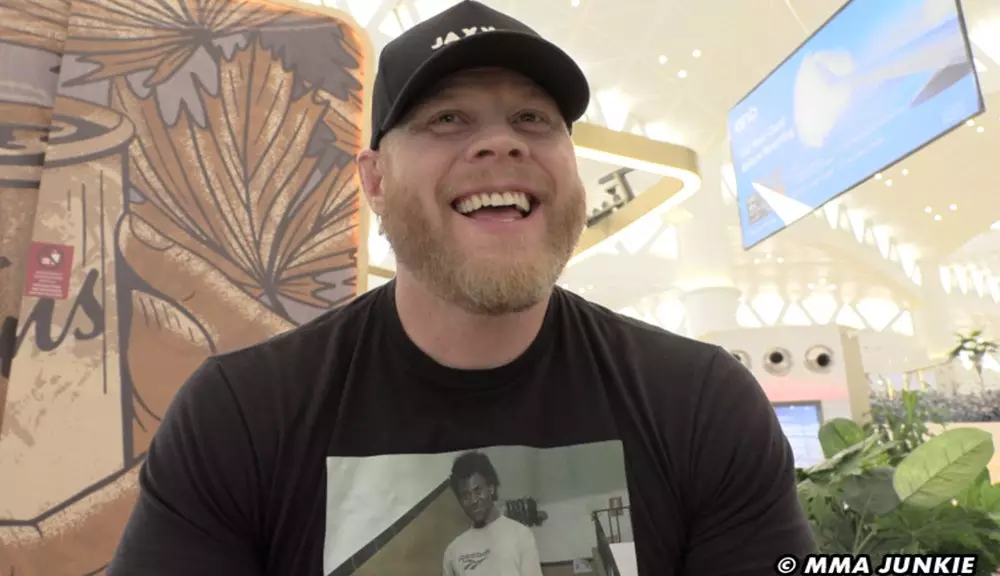In the world of mixed martial arts (MMA), few stories resonate as powerfully as that of Francis Ngannou. The recent PFL: Battle of the Giants showcased not just athletic prowess but also a profound narrative of resilience. Ngannou, who faced immense emotional turmoil following the devastating loss of his 15-month-old son, found himself grappling with both physical pain and mental anguish. His stunning victory against Renan Ferreira, culminating in a first-round knockout to secure the inaugural PFL superfight heavyweight title, was far more than a sports achievement; it was a triumph against despair.
Ngannou entered the octagon seemingly prepared yet undeniably burdened. He had to navigate the emotional landscapes of grief while managing a rib injury that prompted serious considerations about withdrawing from the fight. The physical challenge was significant; Ngannou’s head coach, Eric Nicksick, indicated that the stakes felt particularly high. The concern revolved around how limitations caused by the injury could impact Ngannou’s performance against a formidable opponent. This potential setback speaks to the complicated dynamics of athletic competition, where not only physical fitness but mental resolve can dictate outcomes.
One of the key elements defining Ngannou’s comeback story is his profound dedication to his son, Kobe. The loss he suffered was not just a tragic event but a life-altering experience that led to deep introspection. In the face of such anguish, Ngannou’s choice to step back into the arena was characterized by an unwavering determination to honor his son’s memory through his performance. The emotional weight he carried in the lead-up to the fight undoubtedly added layers of complexity to his motivation; he wasn’t just fighting for himself but for a legacy and a tribute to a lost child.
After the fight, Ngannou’s emotional release was palpable, illustrating the cathartic aspects of sports. As he embraced his coach inside the cage, the tears flowing down his face underscores a moment of deep personal significance. It’s a poignant illustration of how sports can serve as an outlet and a means of healing. Nicksick noted how he could see the incredible relief wash over Ngannou in that moment, affirming that their bond transcended the coach-fighter relationship into something profoundly personal.
Ngannou’s journey to victory was not without its internal struggles. Despite the accolades and successes, he too experienced moments of self-doubt. The weight of past failures, particularly in high-stakes matches, lingered in his mind. Even with all his achievements, the specter of questioning his own abilities shadowed him as he prepared for Ferreira. This vulnerability resonates with many; it reminds us that even the seemingly invincible face their fears. Nicksick’s support role in this moment was crucial, highlighting the importance of a strong support system in high-pressure situations.
This narrative of self-doubt against adversity creates a relatable aspect of Ngannou’s story. He has braved adversity his entire life, from escaping poverty in Cameroon to achieving UFC championship status. Each chapter of his life has contributed to his resilience as an athlete, adding depth to his character. The current chapter, marked by his return to the ring, underscores the idea that triumph is often born from trials.
Ultimately, Ngannou’s win represents more than an individual achievement; it signifies the power of perseverance, the impact of loss, and the potential for personal growth in the face of tremendous adversity. The culmination of his experiences, both personal and professional, converged in that ring, allowing him to emerge not just as a champion but as an icon of resilience.
As fans, witness to his journey, we are reminded of the profound connections we share through sports. Ngannou’s story transcends the boundaries of mere competition; it is about overcoming profound grief and uncertainty, illustrating how the human spirit can endure and triumph against overwhelming odds. This poignant narrative serves as a reminder that champions are not only forged in victories but also in how they confront and rise above life’s trials.

